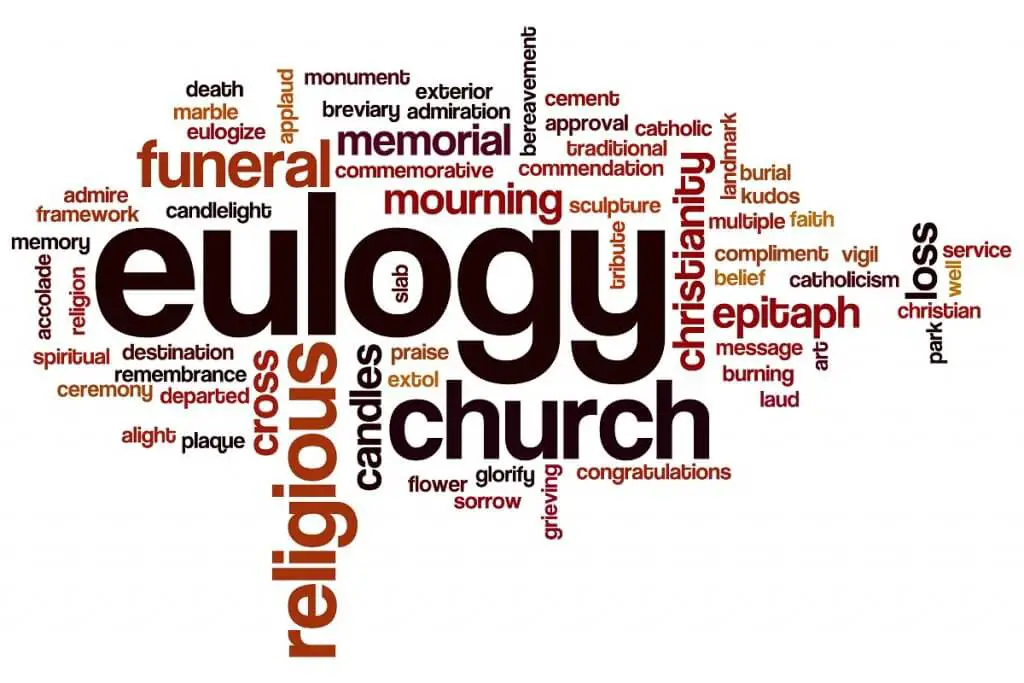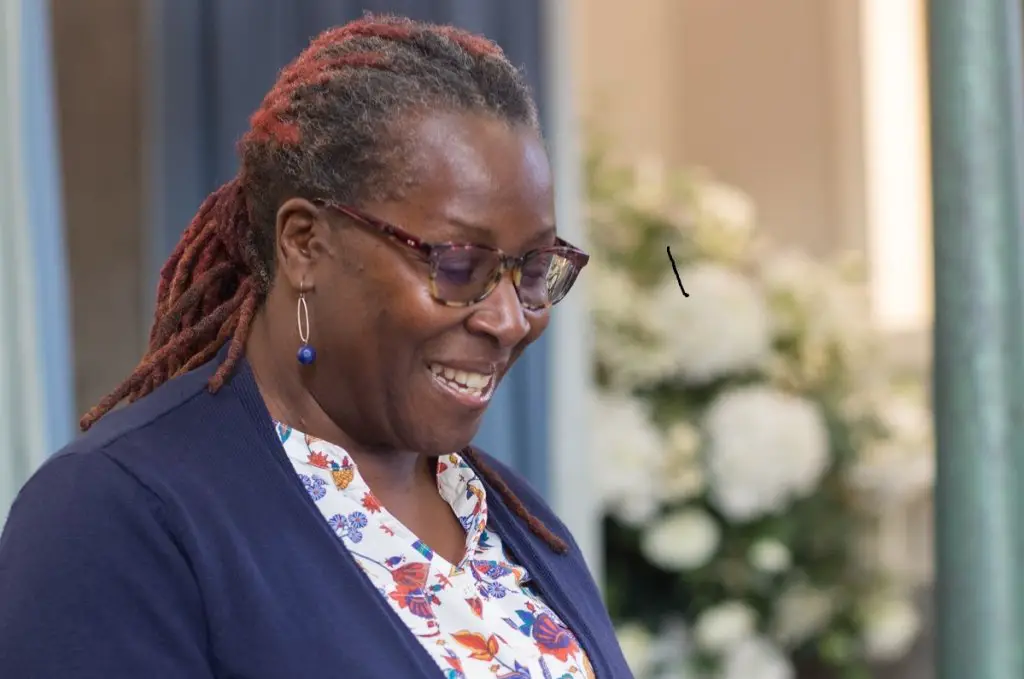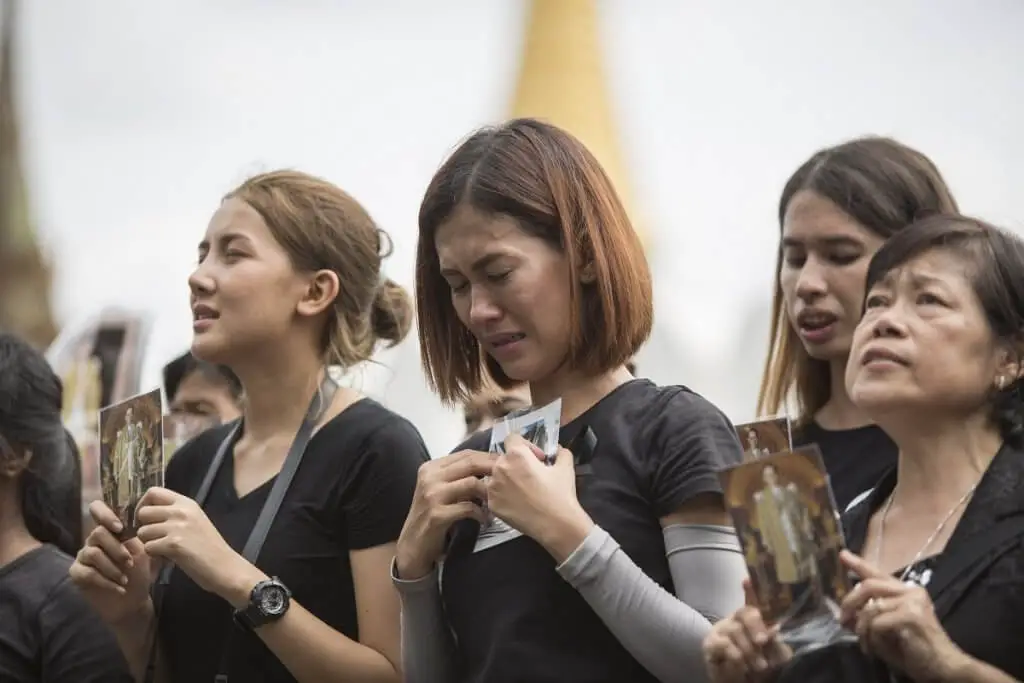Eulogies are tributes paid to the deceased in a short speech. Some of the best ones weave the facts of a person’s life with anecdotes and stories that illustrate their character. They should be honest but not stress flaws, old hurts, and bad memories. They should sensitively deal with subjects pertinent to the departed loved one.
A eulogy is delivered at a funeral, memorial service, or graveside. The purpose of a eulogy is to help family members and loved ones remember the deceased fondly and find closure as they prepare to say goodbye.

Table of Contents
What Do You Say In A Eulogy?
You should start a eulogy by introducing yourself and stating your relationship to the deceased. If you’re immediate family, you can thank people for attending.
Next, describe the spirit or personality of the deceased in one or two sentences. For example, “My mom was an amazing role model to all the young women she mentored. Her legacy will live on through the work they do.”
From here, you can share some basic life facts, such as birthdate, hometown, and information about parents and siblings.
The middle of your speech is where you will have the opportunity to share stories, life milestones, and favorite memories. Depending on the deceased’s personality, you can keep it lighthearted with a funny story or solemn by sticking strictly to the facts of their life story.
You can close your eulogy by sharing a favorite quote, Bible verse, song lyric, or poem. This is also a good time to remind listeners how the deceased would want to be remembered. For example, “My mother would not want us to be sad today. She did so much to make the world a better place where young women can thrive. Let us remember her joy and passion and not dim her memory by grieving.”
Many people also close by speaking directly to the deceased, such as, “I will miss you, mom. I promise to make you proud.”
What Is The Purpose Of A Eulogy?
The purpose of a eulogy is to pay tribute to the deceased and give attendees a sense of peace. It should capture the essence of the life of the deceased and honor their memory. A remembrance speech can unite friends and family and help them find closure as they say goodbye to their loved one’s Earthly body.

Who Usually Gives A Eulogy?
Anyone can give a eulogy speech. It’s usually delivered by immediate family or a close family member – such as a spouse, child, parent, or sibling. But if the deceased didn’t have family, or if they were estranged, it’s not uncommon for a best friend or distant relative to give the speech.
If no one steps up to give the eulogy, a funeral director will prepare and deliver a basic speech based on the life facts of the deceased in chronological order.
What Is A Eulogy Vs. An Obituary?
An obituary is a short blurb that’s published in the local newspaper when someone dies. It contains basic life facts, like birthdate and date of death, parents, and surviving family. It tells where the viewing and memorial services are held if they are open to the public and directs mourners where to send flowers or donations. An obituary is generally around 200 words, although it can be shorter or longer depending on the newspaper’s specifications.
A funeral eulogy is a speech delivered at a funeral or memorial service. It goes into far more detail and is personalized with stories and anecdotes that help support the facts being shared about the deceased’s life. Delivering a eulogy is a form of public speaking, and it can be nerve-wracking – especially when you’re already grieving and emotional.

What Is The Most Important Thing In A Eulogy?
The most important thing about any eulogy is that it is sincere and heartfelt. You are helping friends, family, and loved ones remember the deceased fondly and say their final goodbyes. A good eulogy is moving – either through humor or seriousness. It helps listeners connect their own memories of the deceased with the family’s collective memories being shared in the speech.
One of the best pieces of advice you can heed during the eulogy writing process is to imagine the deceased is in the audience. How would they react to hearing your speech? Would they appreciate what you are saying? Would they wish there was a little more humor? A few more details about their relationship with God? A great eulogy truly captures the spirit of the deceased while capturing the hearts of attendees. As you look around at the audience and make eye contact, you should see heads nodding, small, sad smiles, and damp eyes.
What Should You Not Say In A Eulogy?
A eulogy speech should be positive. Never bring up family tension, arguments, grudges, or grievances. Don’t discuss the deceased’s mistakes, affairs, crimes, or addictions. While they may have been major parts of their life and ultimately led to their death, that is not how loved ones will want to remember them.
Don’t try to sneak these topics in under the guise of humor or sarcasm, either. Put your feelings aside and think about the deceased’s family in attendance. Speak about the deceased with the utmost respect — regardless of whether they deserved it in life.

How Do You Handle Sensitive Subjects In Eulogy
Suicide, mental health issues, drug addictions, and difficult personalities are very common sensitive subjects that families must navigate in a eulogy. If everyone knew the deceased’s dark secret, it might feel like you’re avoiding the elephant in the room by not acknowledging it. But that can also be a sign of respect. If the family does agree to acknowledge sensitive subjects in the eulogy, you must figure out how to do it tastefully.
For example, before a person dies of a drug overdose, they usually have a happy and well-adjusted childhood. They played sports, did well in school, loved dogs, and couldn’t wait to go to college to become a vet tech. Focus on those positive aspects of their life. Then, you can talk about the pain of addiction and how confusing it was for your family to lose this person so young. If you are donating to addiction or mental health research or setting up a trust or scholarship in the deceased’s name, this can be a good opportunity to shed light on the opioid epidemic in the hope that your loved one’s senseless death may help prevent others.

